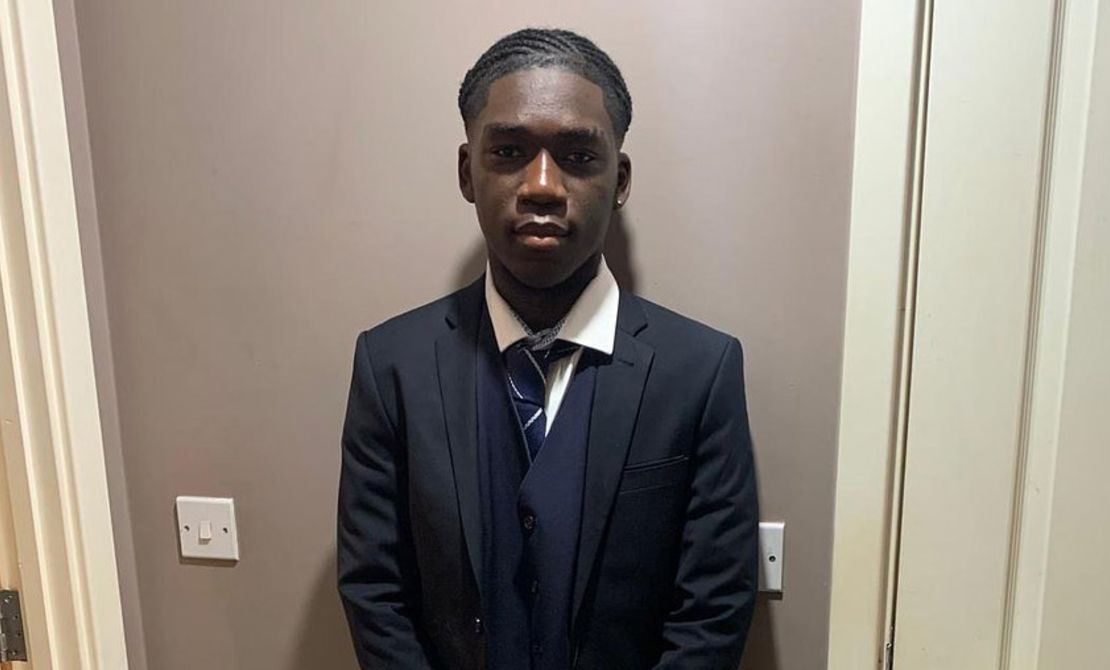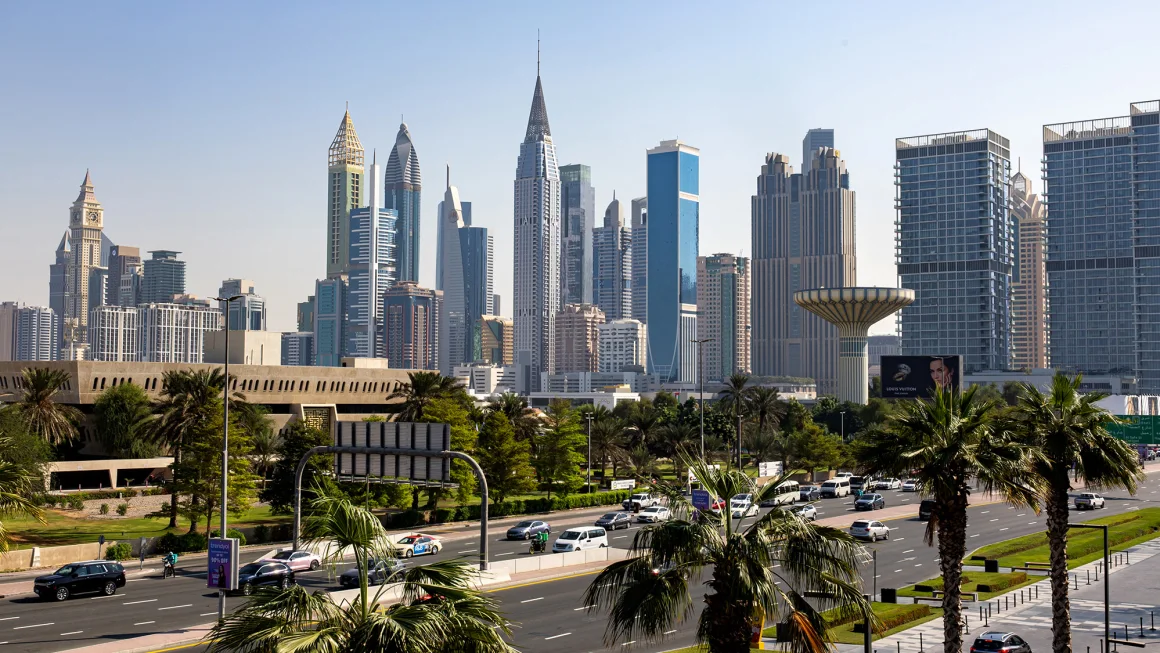Holiday romances are often the stuff of rom-coms, but for 18-year-old Marcus Fakana, his summer fling has landed him facing a one-year prison sentence.
The construction apprentice from London was vacationing with his family in Dubai in September when he met a fellow British teenager at his hotel. The two quickly began a romantic relationship, which turned sexual.
While they planned to continue their connection in London, things took a turn when the 17-year-old girl returned home. Her mother discovered the relationship and reported Fakana to Dubai police.
“It was incredibly traumatic. I was taken from the hotel without being told why, and I wasn’t allowed to contact anyone, including my parents,” Fakana said in a written statement to CNN, shared by his legal team, Detained in Dubai. “Everything was in Arabic, and I had no idea when I would be released. I wasn’t given access to a lawyer, the embassy, or my family.”
In the United Arab Emirates, where Dubai is the largest city, the age of consent is 18, meaning the girl was considered a minor during her relationship with Fakana.
“I never intended to break the law, and I didn’t even know she was just one month away from turning 18,” Fakana explained, noting that he didn’t view their age difference as an issue since they were in the same school year.
The teenager expressed regret for his actions and is now appealing to Dubai’s ruler and Prime Minister, Sheikh Mohammed bin Rashid al Maktoum, to overturn his one-year prison sentence. “I just want to go home for Christmas with my family,” Fakana said.
A ‘modern’ tourist destination
Dubai is a top destination for Western European travelers, drawn by its warm climate and luxurious lifestyle. The city welcomed a record 17.15 million international visitors last year, and its airport served 87 million passengers, making it the second-busiest in the world.
However, many travelers are unaware of the stark differences in the legal system of this authoritarian nation, which combines both civil and Sharia law.
Dubai promotes itself as a “modern and liberal tourist destination,” but this can be “confusing for tourists” who encounter unfamiliar laws or their arbitrary enforcement, says Radha Stirling, CEO and founder of Detained in Dubai, a UK-based legal advisory and human rights organization.
Fakana’s case is just the latest instance of a foreigner finding themselves in legal trouble in the so-called City of Gold.
Tourists in Dubai often run into legal issues surrounding relationships, alcohol, and online activity. While alcohol is legal in licensed venues and party culture is prevalent, anyone caught with alcohol in their system in public can be charged with public drunkenness or consuming alcohol without a license, according to Radha Stirling.
“No one would think it’s illegal to leave a venue, get in a taxi, and go home, but if you’re outside the venue, you’re breaking the law,” she explains.
Another area of confusion is the country’s strict cybercrime laws, which cover everything from hacking and terrorism to negative comments and promoting charities. These laws apply to both private and public communications, can be enforced retroactively, and extend internationally — meaning something shared online before arriving in the UAE can still lead to prosecution once you’re there.
“I’d say almost 100% of visitors to the UAE are in violation of these laws, if someone made the effort to report them,” Stirling adds. This year, a 39-year-old Irishman was detained for three months after sending a “threatening emoji,” and a Northern Irish man spent two months in detention for leaving a negative Google review.
‘It can break you’
The UAE has one of the highest rates of foreign prisoners in the world, a fact that isn’t surprising given that around 90% of the country’s population is non-Emirati. However, Radha Stirling notes that most individuals detained in the UAE do not end up serving prison sentences.
According to Azaan Salahuddin, managing partner at Dubai-based law firm Al Adl Legal, the strict enforcement of these laws is necessary to maintain public safety and security. “Laws are meant to protect citizens, or people coming from outside the country,” he says.
He highlights the UAE’s low crime rate, with Dubai recording just 24.6 crimes per 100,000 people in 2023—significantly lower than the UK’s rate of 84 per 1,000 people, although the measurements are based on different ratios.
“Every country enforces its laws,” Salahuddin says, stressing that ignorance of the law is no excuse and it’s the responsibility of travelers to understand the legal system. In Fakana’s case, he adds, “It is clear that the girl was under the age of consent and her parents pressed charges. It’s a straightforward case.”

UK Foreign Secretary David Lammy, who represents Fakana’s constituency of Tottenham, reinforced this message: “Wherever you are in the world, it’s important to follow the rules and laws of that country. That’s why the Foreign Office provides information on its website about local laws.”
A spokesperson for British Prime Minister Keir Starmer expressed sympathy for Fakana and his family, saying, “It’s an extremely distressing situation for Marcus and his family,” and that the Foreign Office is in regular contact with both the family and his legal team during this challenging time.
Other foreigners have also struggled with the UAE’s legal system and its often confusing, caveated laws.
In July this year, Tori Towey, a 28-year-old Irish flight attendant working for Dubai-based airline Emirates, was facing six months in prison for attempting suicide and consuming alcohol.
Towey, who had lived in Dubai for a year, says her partner became physically abusive after they moved in together. She reported the domestic violence to the police, but her partner retaliated by filing a case against her, resulting in a travel ban that prevented her from working or leaving the country.
“The police told me that if I dropped the case, my travel ban would be lifted,” Towey explains. But that didn’t happen. “I was left in a really bad situation. I had nowhere to go, so I had to go back to him. I felt completely stuck, like there was no help.”
In May of this year, after attempting to take her own life, Towey was taken to the police station and faced charges of attempted suicide. Despite a 2020 announcement that suicide would be decriminalized, it remains illegal in the UAE.
“I had to find out the charges on my own because no one told me,” she says. Finding legal representation was also a struggle. “Lawyers wouldn’t even consider my case without an upfront payment of 20,000 dirhams (about $5,400).”
Towey eventually received legal help from Detained in Dubai, and with pressure from the Irish government and media attention, her two-month travel ban was lifted, the charges were dropped, and she was able to return home.
Before all of this, Towey says she was happy in Dubai and still holds affection for the city and its culture. “It’s not the city—it’s the system and the stress it can cause. It can break you because you can lose everything,” she reflects.
An uncertain future
Meanwhile, Fakana’s parents had to return to the UK for work, leaving him alone in Dubai.
“I’ve been here for four months, and it’s been both stressful and financially draining,” he says. “I’ve been without my family for a long time, struggling with anxiety, headaches, and sleepless nights.”
Radha Stirling believes Fakana’s case should have been handled by a misdemeanor court. She alleges that the police report incorrectly stated his age as 19 and his nationality as Pakistani, which she believes may have contributed to the harsher sentence.
Fakana and his legal team are now weighing whether to appeal his one-year sentence at Dubai Central Prison, a facility with a troubling history of human rights abuses and torture. However, there’s also the possibility that the prosecution may pursue an even stricter penalty.
“I’ve heard they might impose a fine and deportation instead, and I’m pleading for that,” Fakana says.
“This has been an eye-opener. It’s been the most stressful time of my entire life.”
